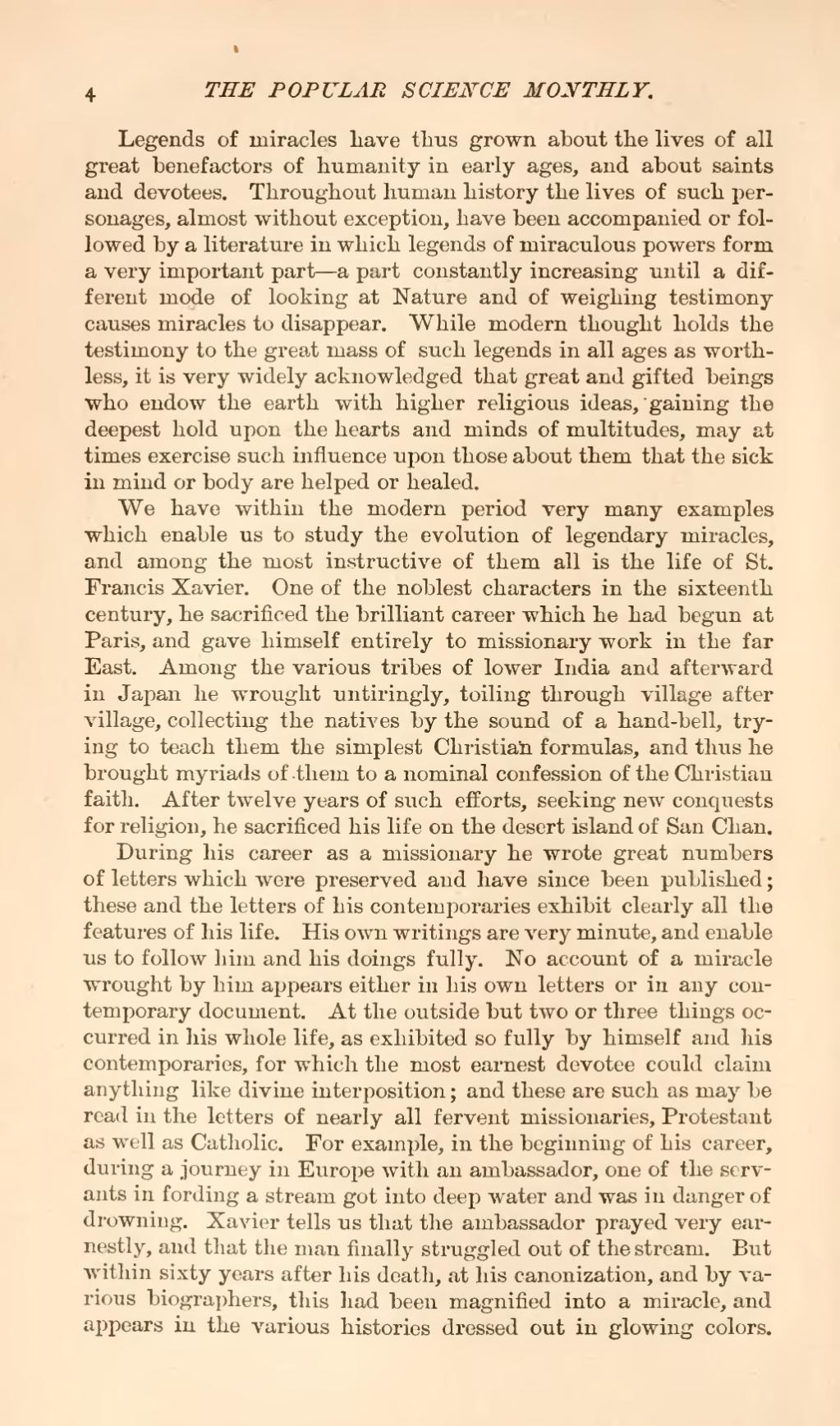Legends of miracles have thus grown about the lives of all great benefactors of humanity in early ages, and about saints and devotees. Throughout human history the lives of such personages, almost without exception, have been accompanied or followed by a literature in which legends of miraculous powers form a very important part—a part constantly increasing until a different mode of looking at Nature and of weighing testimony causes miracles to disappear. While modern thought holds the testimony to the great mass of such legends in all ages as worthless, it is very widely acknowledged that great and gifted beings who endow the earth with higher religious ideas, gaining the deepest hold upon the hearts and minds of multitudes, may at times exercise such influence upon those about them that the sick in mind or body are helped or healed.
We have within the modern period very many examples which enable us to study the evolution of legendary miracles, and among the most instructive of them all is the life of St. Francis Xavier. One of the noblest characters in the sixteenth century, he sacrificed the brilliant career which he had begun at Paris, and gave himself entirely to missionary work in the far East. Among the various tribes of lower India and afterward in Japan he wrought untiringly, toiling through village after village, collecting the natives by the sound of a hand-bell, trying to teach them the simplest Christian formulas, and thus he brought myriads of them to a nominal confession of the Christian faith. After twelve years of such efforts, seeking new conquests for religion, he sacrificed his life on the desert island of San Chan.
During his career as a missionary he wrote great numbers of letters which were preserved and have since been published; these and the letters of his contemporaries exhibit clearly all the features of his life. His own writings are very minute, and enable us to follow him and his doings fully. No account of a miracle wrought by him appears either in his own letters or in any contemporary document. At the outside but two or three things occurred in his whole life, as exhibited so fully by himself and his contemporaries, for which the most earnest devotee could claim anything like divine interposition; and these are such as may be read in the letters of nearly all fervent missionaries, Protestant as well as Catholic. For example, in the beginning of his career, during a journey in Europe with an ambassador, one of the servants in fording a stream got into deep water and was in danger of drowning. Xavier tells us that the ambassador prayed very earnestly, and that the man finally struggled out of the stream. But within sixty years after his death, at his canonization, and by various biographers, this had been magnified into a miracle, and appears in the various histories dressed out in glowing colors.
